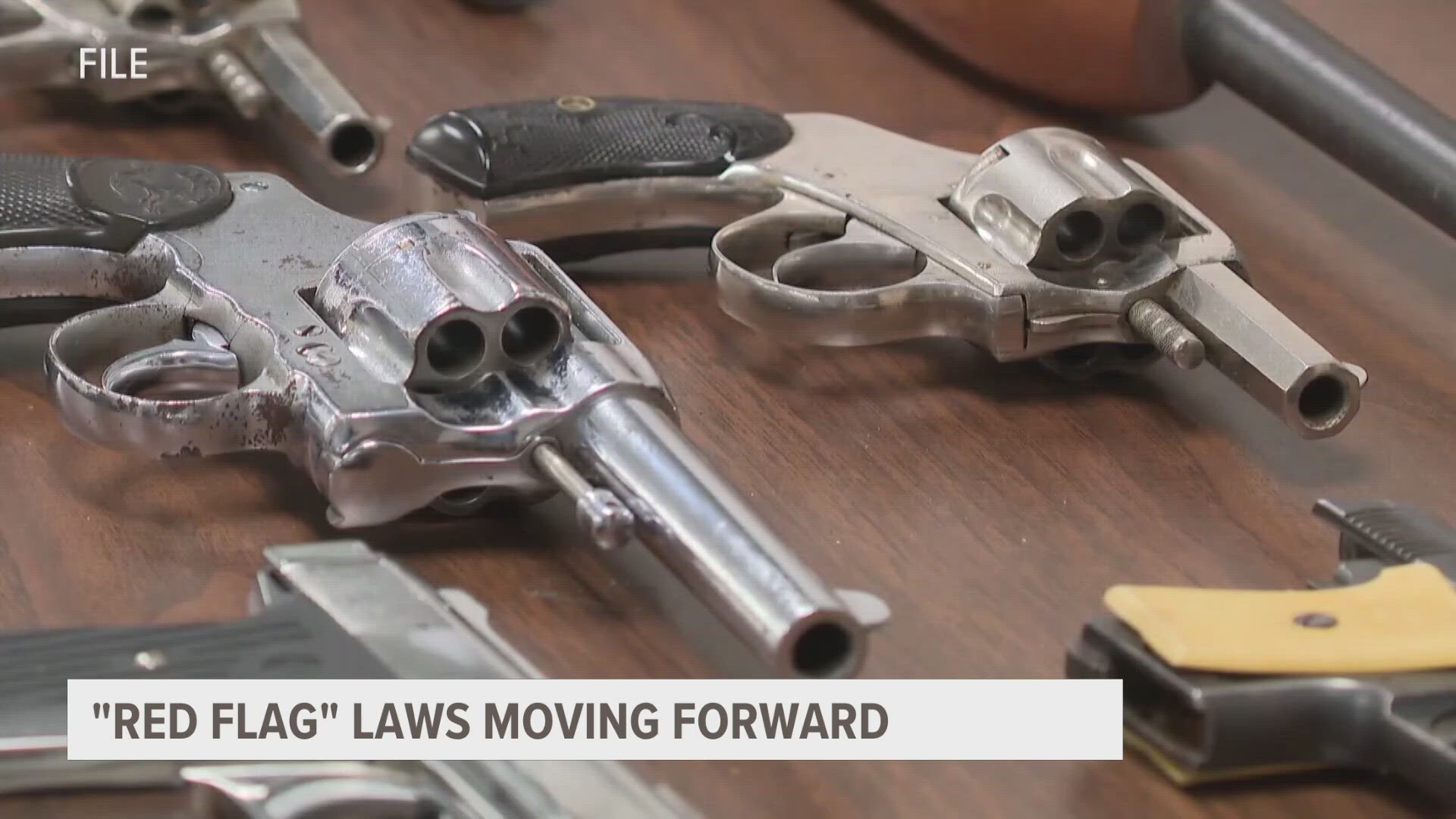LANSING, Mich. — Just hours after Gov. Gretchen Whitmer signed new gun reform legislation into law, the Michigan House voted on to a set of bills pertaining to extreme risk protection orders also known as “red flag” laws.
Spearheaded by House Democrats, the bills passed along party lines. This comes a few weeks after Senate Democrats approved similar legislation.
Both chambers of the Michigan Legislature have to come to an agreement on the final version of the bills before sending it to the governor's desk.
Whitmer has already said she will sign the package if lawmakers can get it to her.
While legislation on universal background checks and safe storage passed with some Republican support, red flag laws have face more scrutiny from the opposition.
Under an extreme risk protection order, individuals would be able to ask a judge to temporarily take firearms from someone believed to be a danger to themselves and others. Those individuals must be family members, medical professionals, guardians, former dating partners or law enforcement officials.
Members of the Michigan House Freedom Caucus issued a statement urging their colleagues to reject the bills, claiming it’s a violation of due process.
Fremont Representative Joseph Fox was quoted in the release saying, "We need to address the root causes of violence, not infringe on the rights of law-abiding citizens."
Meanwhile, public safety advocates such as the organization Moms Demand Action argue there is due process involved in red flag laws because the petition has to go before a judge, and it will ultimately save more lives.
"This law potentially could have saved my dad who took his life with his firearm just over nine years ago, it was nine years on Easter this year. And had there been a red flag law in place I potentially could have petitioned to have his firearm removed from him, ultimately saving his life,” said Celeste Kanpurwala, Michigan Chapter Leader of Moms Demand Action.
Lawmakers adopted amendments Thursday. One would require the individual petitioning the court to show the order is necessary. Plus, give those under an extreme risk order the chance to ask a judge to overturn the ruling twice during a one-year period.
It's now up to the House and Senate to come to an agreement on the bills, which could happen sometime this month.
►Make it easy to keep up to date with more stories like this. Download the 13 ON YOUR SIDE app now.
Have a news tip? Email news@13onyourside.com, visit our Facebook page or Twitter. Subscribe to our YouTube channel.

